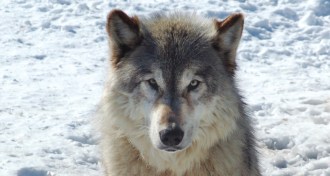
Meghan Rosen is a senior writer who reports on the life sciences for Science News. She earned a Ph.D. in biochemistry and molecular biology with an emphasis in biotechnology from the University of California, Davis. Her dissertation work involved studying mutated proteins in liver and kidney cancer. She later graduated from the science communication program at UC Santa Cruz. Prior to joining Science News in 2022, she was a media relations manager at the Howard Hughes Medical Institute. Her work has appeared in Wired, Science, and The Washington Post, among other outlets. Once for McSweeney’s, she wrote about her kids’ habit of handing her trash, a story that still makes her (and them) laugh.

Trustworthy journalism comes at a price.
Scientists and journalists share a core belief in questioning, observing and verifying to reach the truth. Science News reports on crucial research and discovery across science disciplines. We need your financial support to make it happen – every contribution makes a difference.
All Stories by Meghan Rosen
-
 Neuroscience
NeuroscienceMe, Myself, and Why
Me, Myself, and Why is an ambitious effort to dissect the hodgepodge of genetic and environmental factors that sculpt people’s identities.
-
 Psychology
PsychologySuicide rates drop in big cities
With more social connections, people may be less inclined to take their own lives.
-
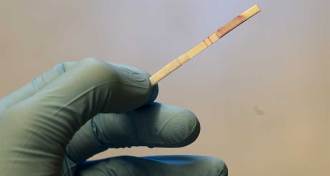 Health & Medicine
Health & MedicineUrine test detects not pregnancy but cancer
A paper strip uses nanoparticles to pick up evidence of tumors or blood clots in mice.
-
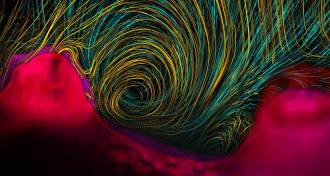 Animals
AnimalsA tiny ocean vortex, with pop art pizzazz
Coral polyps kick up a whirling vortex of water by whipping their hairlike cilia back and forth in the photography winner of the 2013 International Science & Engineering Visualization Challenge.
-
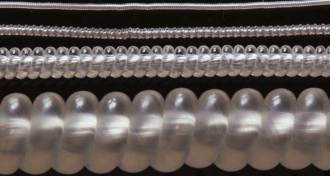 Materials Science
Materials ScienceMaking artificial muscles with a spin
Scientists have given ordinary fishing line and sewing thread a new twist. When coiled into tight corkscrews, the fibers can lift loads more than 100 times as heavy as those hefted by human muscles.
-
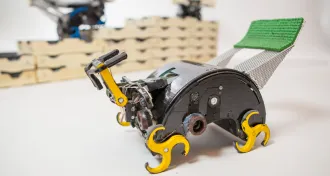 Tech
TechTermite-inspired robots build structures without central command
Simple guidelines keep machines hauling and placing bricks.
-
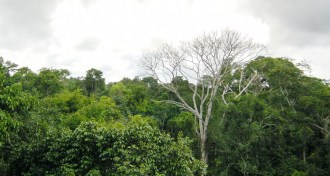 Ecosystems
EcosystemsAmazon doesn’t actually go green in dry seasons
An optical illusion in satellite data made forests appear to grow faster.
-
 Materials Science
Materials ScienceEtched glass stops cracks in their tracks
Adding wavy lines to glass reduces the material’s notorious brittleness.
-
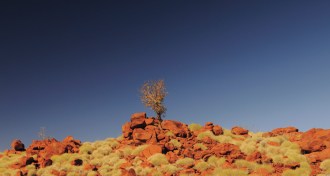 Earth
EarthLife’s early traces
Tiny tufts, rolls and crinkles in 3.5-billion-year-old rocks add to a growing body of evidence suggesting that cellular life got a relatively quick start on Earth.
-
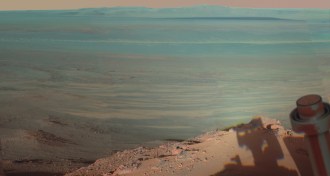 Planetary Science
Planetary ScienceOld rover finds new evidence of water on Mars
Opportunity’s analysis of rocks at Endeavour crater reveals chemistry that could have supported life.
-
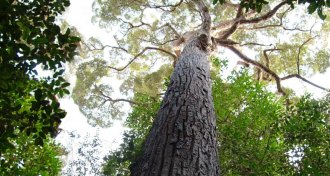 Ecosystems
EcosystemsTrees’ growth keeps climbing with age
Older trees pack on weight faster, making them potentially the best carbon collectors.
-
